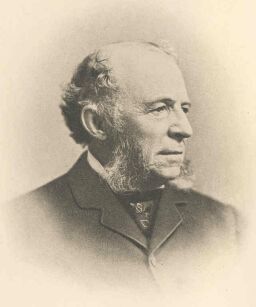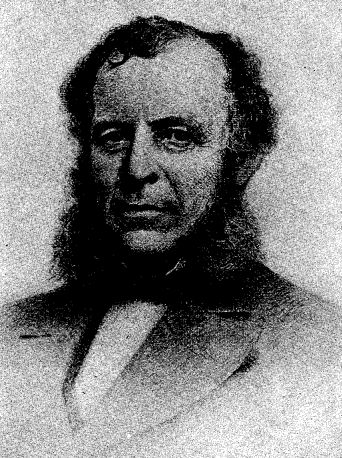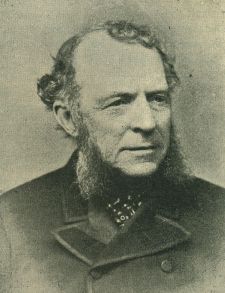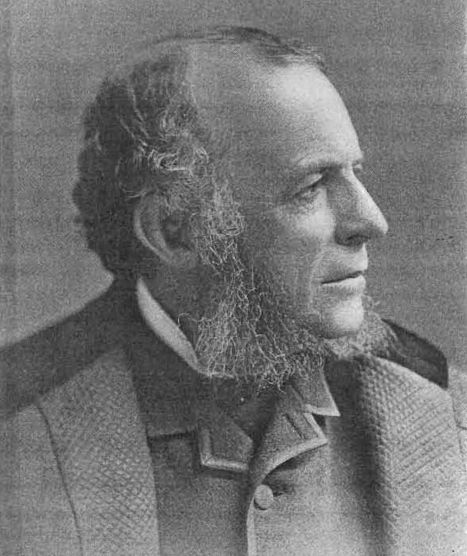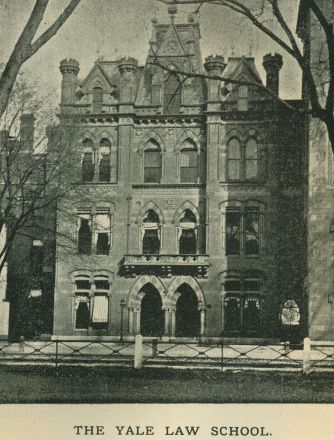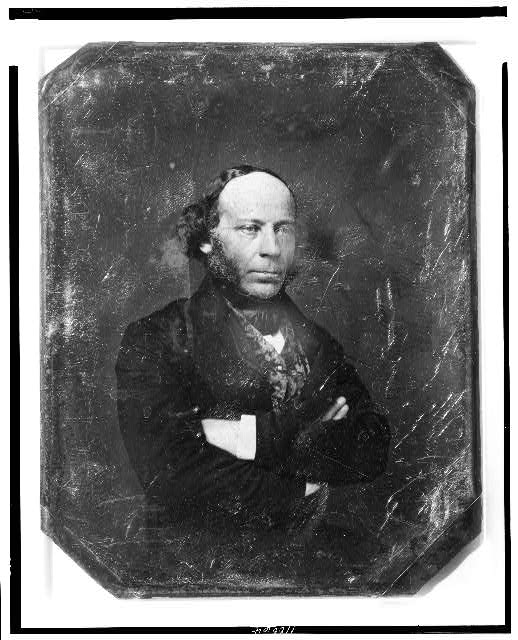|
Edward John Phelps
Edward J. Phelps was born in Middlebury, Vermont. He graduated from Middlebury College at age 18, and went on to study law at Yale University. He was admitted to the bar in 1843, and began the practice of law at Middlebury, but moved to Burlington in 1845. Phelps served as the second comptroller of the United States Treasury from 1851 to 1853, and then practiced law in New York City until 1857, when he returned to Burlington. In 1880, Phelps was the Democratic candidate for governor of Vermont. Phelps was a founder of the American Bar Association (ABA) and served as its president in 1880-1881. After his tenure as president of the ABA, Phelps taught law at Yale University as the Kent Professor of Law until his death. Phelps also lectured on medical jurisprudence at the University of Vermont, 1881-1883, and on Constitutional Law at Boston University, 1882-1883. He served as minister to Great Britain from 1885 to 1889, and in 1893 as Senior Counsel for the United States before a Paris tribunal to adjudicate the Bering Sea controversy. Phelps died at New Haven, Connecticut. [Source: Edward John Phelps, 1 911 Encyclopedia] Edward John Phelps
Robert E. Healy, Edward John Phelps: Third President of American Bar Association
Leonard M. Daggett, The Yale Law School
Harper's Weekly The Late E. J. Phelps Though a man of proved capacity and scholarship,
and of wide and distinguished reputation as a lawyer,
when President Cleveland, in 1885, appointed him minister to Great Britain he was not widely known outside of
his profession, so that the appointment occasioned surprise. Its wisdom was amply justified. He proved an
exceedingly competent, acceptable, and successful representative of the United States, and as a minister was very
popular abroad, and sincerely respected by the more discriminating of his own countrymen. He, and his wife as
well, during their stay in London, contributed in a very
important degree to the work in which Mr. Lowell had
preceded him, and which Mr. Lincoln and Mr. Bayard
continued, of bringing the British and the American peoples into more cordial and sympathetic relations. It is on
the marked success of his career in London that Mr.
Phelps 's reputation as a public man chiefly rests. That
success was attained by very solid qualities, of learning
and character, joined to attractive personal traits, sound
judgment as to men and the merits of disputed questions,
and social gifts of unusual charm.
He continued
to perform its duties up to the time of the illness which
ended his life, finding leisure also for various important
writings on constitutional and governmental subjects, and
for the expression of his views from time to time on pressing matters of public policy. In 1893 he was appointed
senior counsel of the United States in the Bering Sea controversy, and made the closing argument for the American
side before the Court of Arbitration in Paris. Later, as a
distinguished American, his good offices were engaged to
assist the settlement of the dispute which arose with Lord
Dunraven over his attempt to capture the America's cup.
Edward John Phelps
Supreme Court Justice Felix Frankfurter, in a 1953 talk to law students at the University of Virginia (which appears in a 1953 issue of the Virginia Law Review) recounts how Edward J. Phelps was expected to be named as a Justice of the Supreme Court:
THE FOREIGN MINISTERS.
Poetry "The Lay of the Lost Traveler" Edward J. Phelps, "The Ballad of Essex Junction," in Paul S. Gillies, The Law and Vermont Literature: A Drive-By, 22 Vt. B.J. & L. Dig. 11, 12 (August, 1996) Writings J.G. McCullough (ed.), Orations & Essays of Edward John Phelps, Diplomat & Statesman (New York: Harper & Brothers, 1901) [online text] Addresses E. J. Phelps, The Law of the Land: Address Delivered Before the Edinburgh Philosophical Institution at the Opening of Its Session November 1886 (London: Harris & Sons, 1887) [online text] _________, A Sketch of the Life and Character of Charles Lindsay: Read Before the Vermont Historical Society (Albany, New York: J. Munsell, 1866) [online text] _________, Address on the Life and Public Serrvices of the Hon. Samuel Prentiss: Delivered Before the Vermont Historical Society, at Montpelier, Oct. 26, 1882 (Montpelier: Watchman & Journal Press, 1883) [online text] _________, International Relations: Address Before the Phi Beta Kappa Society of Harvard University June 29, 1889 (Burlington: Free Press Association, 1889) [online text] Bibliography Matthew H. Buckham, The Life and Public Services of Edward John Phelps; an address delivered before the Vermont Historical Society, Proceedings (Burlington, Vermont, 1901) Francis Parsons, Six Men of Yale (New Haven: Yale University Press, 1939) |
